MercoPress. South Atlantic News Agency
Tag: British Antarctic Survey (BAS)
-
Wednesday, July 6th 2022 - 09:45 UTC
BAS report, the Antarctic glaciers ice loss is “unprecedented”
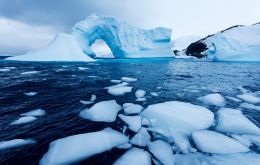
Two crucial glaciers in West Antarctica may be losing ice faster than they have over the last 5,000 years, according to a new study published in June. The international team, led by the University of Maine and including British Antarctic Survey (BAS) geologist Dr Joanne Johnson, examined the history of Thwaites and Pine Island Glaciers in the West Antarctic Ice Sheet.
-
Thursday, June 23rd 2022 - 09:39 UTC
Midwinter Day in Antarctica, the shortest and darkest of the year
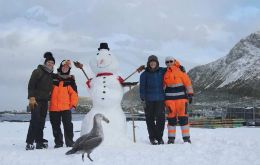
British Antarctic Survey (BAS) staff in the UK and across three Antarctic wintering stations observed the shortest, darkest day of the year on the frozen continent with a host of unique celebrations.
-
Thursday, June 16th 2022 - 09:51 UTC
Satellite images and artificial intelligence systems facilitate whales census and conservation work
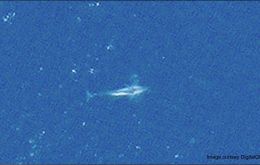
A new dataset featuring hundreds of satellite images of whales has been published to support the development of artificial intelligence systems which will aid crucial conservation work.
-
Saturday, June 11th 2022 - 11:09 UTC
BAS/South Georgia launch new data portal on one of the world's largest Marine Protected Areas

A new Data Portal was launched on Friday by the British Antarctic Survey and the Government of South Georgia and the South Sandwich Islands (GSGSSI), which will help to enhance the management of one of the world’s largest Marine Protected Areas (MPAs).
-
Saturday, June 11th 2022 - 10:00 UTC
After five years of work, new seafloor map of the Southern Ocean covering 48 million sq Km
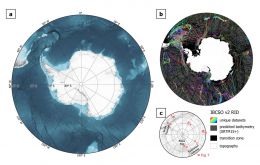
A new map of the seafloor of the Southern Ocean surrounding Antarctica provides the most accurate representation of this vast area to date. The International Bathymetric Chart of the Southern Ocean (IBSCO) has taken five years to compile and update this map, which was first published in 2013.
-
Saturday, May 14th 2022 - 07:45 UTC
Merchant Navy cadets join RRS Sir David Attenborough in the Falklands for training deployment
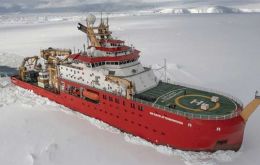
Four Trinity House Merchant Navy Cadets are joining Britain’s new polar research vessel RRS Sir David Attenborough this week in the Falkland Islands on a four-month training deployment.
-
Thursday, May 5th 2022 - 09:46 UTC
BAS Director Professor Jane Francis awarded Patron's Medal from the Royal Geographical Society
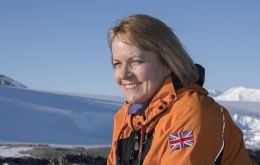
The director of the British Antarctic Survey (BAS), Professor Dame Jane Francis has been awarded the prestigious Royal Geographical Society with the Institute of British Geographers (IBG) Patron’s Medal for contributions to earth and environmental sciences.
-
Monday, April 18th 2022 - 09:49 UTC
UK investing heavily in Antarctica and Arctic research to remain world leader in polar science
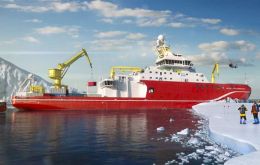
The UK is investing in modernizing its Antarctica and Arctic research facilities, with total funding of £670 million, including £290 million announced this week. As a world leader in polar science, UK research conducted in the region is of global importance. This is in addition to existing science funding activities.
-
Saturday, April 16th 2022 - 08:06 UTC
Trying to understand the melting process of the largest ice shelf in Antarctica

A new study by scientists from British Antarctic Survey (BAS) has used computer modeling to rank the factors responsible for the Larsen C ice shelf melt according to their severity. The review is an important contribution to the understanding of the largest remaining ice shelf on the Antarctic Peninsula.
-
Thursday, April 7th 2022 - 09:34 UTC
New link between greenhouse gases and sea-level rise, BAS scientists
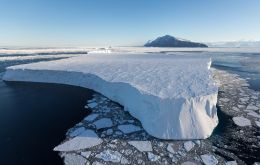
Advanced ocean modeling techniques reveal how greenhouse gas emissions contribute to warmer oceans and the resulting melting of the West Antarctic Ice Sheet. A new study by scientists Kaitlin Naughten and Paul Holland from British Antarctic Survey (BAS) provides the first evidence that rising greenhouse gases have a long-term warming effect on the Amundsen Sea in West Antarctica.
